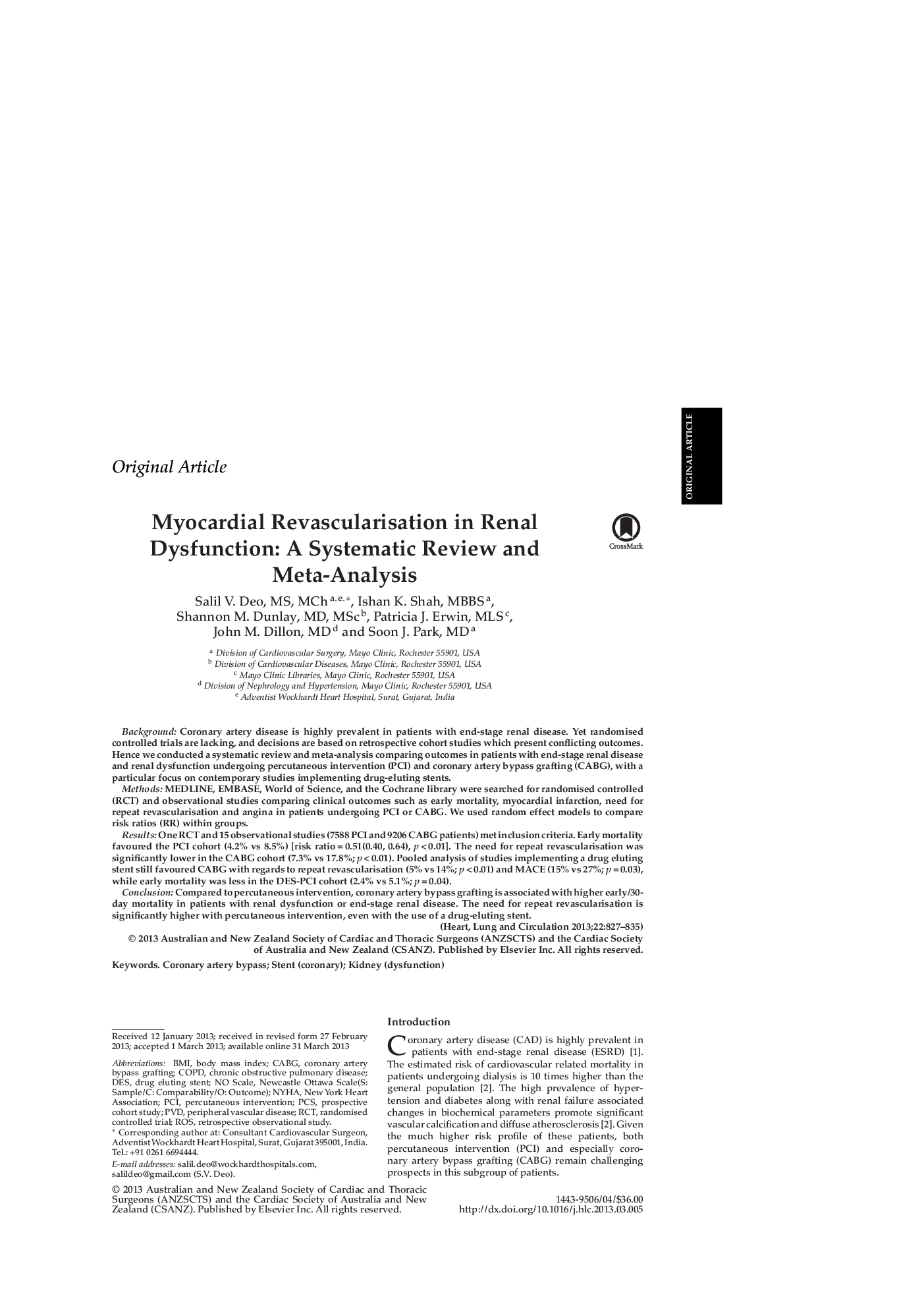| Article ID | Journal | Published Year | Pages | File Type |
|---|---|---|---|---|
| 2917761 | Heart, Lung and Circulation | 2013 | 9 Pages |
BackgroundCoronary artery disease is highly prevalent in patients with end-stage renal disease. Yet randomised controlled trials are lacking, and decisions are based on retrospective cohort studies which present conflicting outcomes. Hence we conducted a systematic review and meta-analysis comparing outcomes in patients with end-stage renal disease and renal dysfunction undergoing percutaneous intervention (PCI) and coronary artery bypass grafting (CABG), with a particular focus on contemporary studies implementing drug-eluting stents.MethodsMEDLINE, EMBASE, World of Science, and the Cochrane library were searched for randomised controlled (RCT) and observational studies comparing clinical outcomes such as early mortality, myocardial infarction, need for repeat revascularisation and angina in patients undergoing PCI or CABG. We used random effect models to compare risk ratios (RR) within groups.ResultsOne RCT and 15 observational studies (7588 PCI and 9206 CABG patients) met inclusion criteria. Early mortality favoured the PCI cohort (4.2% vs 8.5%) [risk ratio = 0.51(0.40, 0.64), p < 0.01]. The need for repeat revascularisation was significantly lower in the CABG cohort (7.3% vs 17.8%; p < 0.01). Pooled analysis of studies implementing a drug eluting stent still favoured CABG with regards to repeat revascularisation (5% vs 14%; p < 0.01) and MACE (15% vs 27%; p = 0.03), while early mortality was less in the DES-PCI cohort (2.4% vs 5.1%; p = 0.04).ConclusionCompared to percutaneous intervention, coronary artery bypass grafting is associated with higher early/30-day mortality in patients with renal dysfunction or end-stage renal disease. The need for repeat revascularisation is significantly higher with percutaneous intervention, even with the use of a drug-eluting stent.
